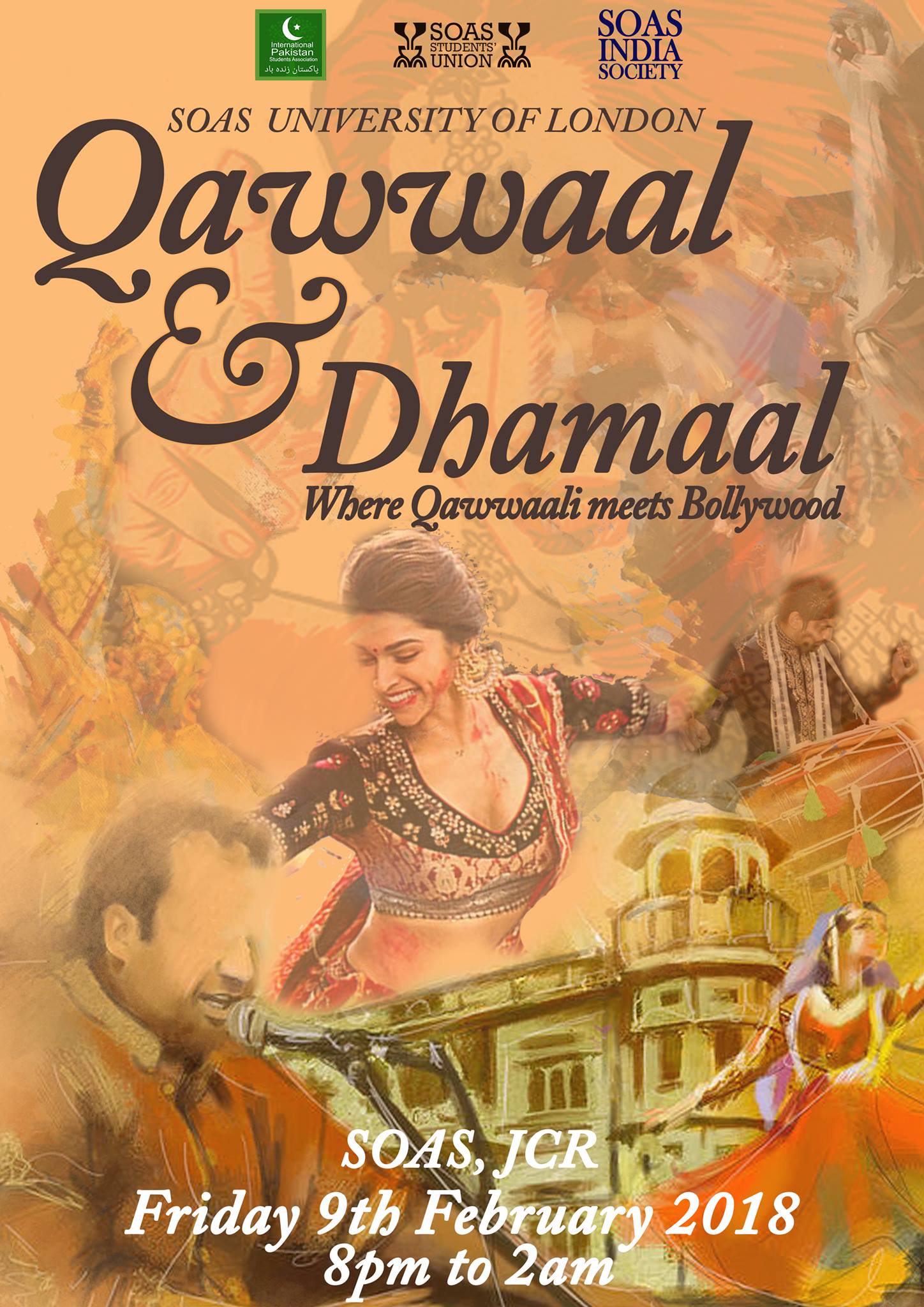By Ahmad Jamal Wattoo, BA Economics and Politics
On Friday the 9th of February, SOAS witnessed one of the biggest Late License events in its 102-year history, aptly named ‘Qawwaal and Dhamaal’. The event was organised by the International Pakistan Students Association, the SOAS India Society and the SOAS Students’ Union and took place in the Junior Common Room (JCR) in SOAS. It featured a Sufi music performance by the famed Pakistani Qawwaali singers, the Khan Brothers Qawwaal Group as well as an electrifying performance by several Dholis who played South Asian Dhol drums to the beats of Bollywood songs. To top it off, the veteran DJ for the night, DJ Shri entertained the attendees till the wee hours of the night.
The music that seemed to resonate most with the audience was the Qawwaali music sung by Amjad Khan of the Khan Brothers Qawwaal Group. Qawwaali is basically a form of Sufi music with the central themes being love, devotion and longing of man for the Divine. Despite some audience members being unable to understand the lyrics of the songs being sung, everyone in the JCR clapped to the beat of the musicians’ drums and swayed to the soulful voices of the group which sang in unison for most of the evening. The reactions of the audience gave true meaning to the saying, ‘music has no language’.
However, relations between India and Pakistan internationally have been turbulent to say the least; ‘Qawwaal and Dhamaal’ comes at a time when tension between India and Pakistan is at its peak. Cross-border firing at the ‘Line of Control’, the border shared by India and Pakistan has resulted in countless civilian and military casualties on both sides. That, coupled with the events of the preceding year, resulted in a complete ban on Pakistani actors, musicians and other artists from working in India and vice versa.
Not willing to allow the narratives advanced by their home countries to govern their decisions, students from the International Pakistan Students’ Association and the SOAS India Society decided to organise an event that would incorporate elements of music from both India and Pakistan. Their aim was to unite both countries through their shared love for music and with the help of SOAS’s Co-President for Activities and Events, Mehdi Baraka, their event became a massive success.
Several British and Pakistani News Channels including Channel UK 44, Dunya News and Neo News covered the event, broadcasting images of the performances and attendees in Pakistan and across the world.
Pakistani and Indian students at SOAS appreciated the event, with one of the attendees asking for similar events to be organised on a weekly basis. Events like this, they continued, could bridge the differences between both communities and prompt other Student Union Societies to organise similar events in SOAS.
